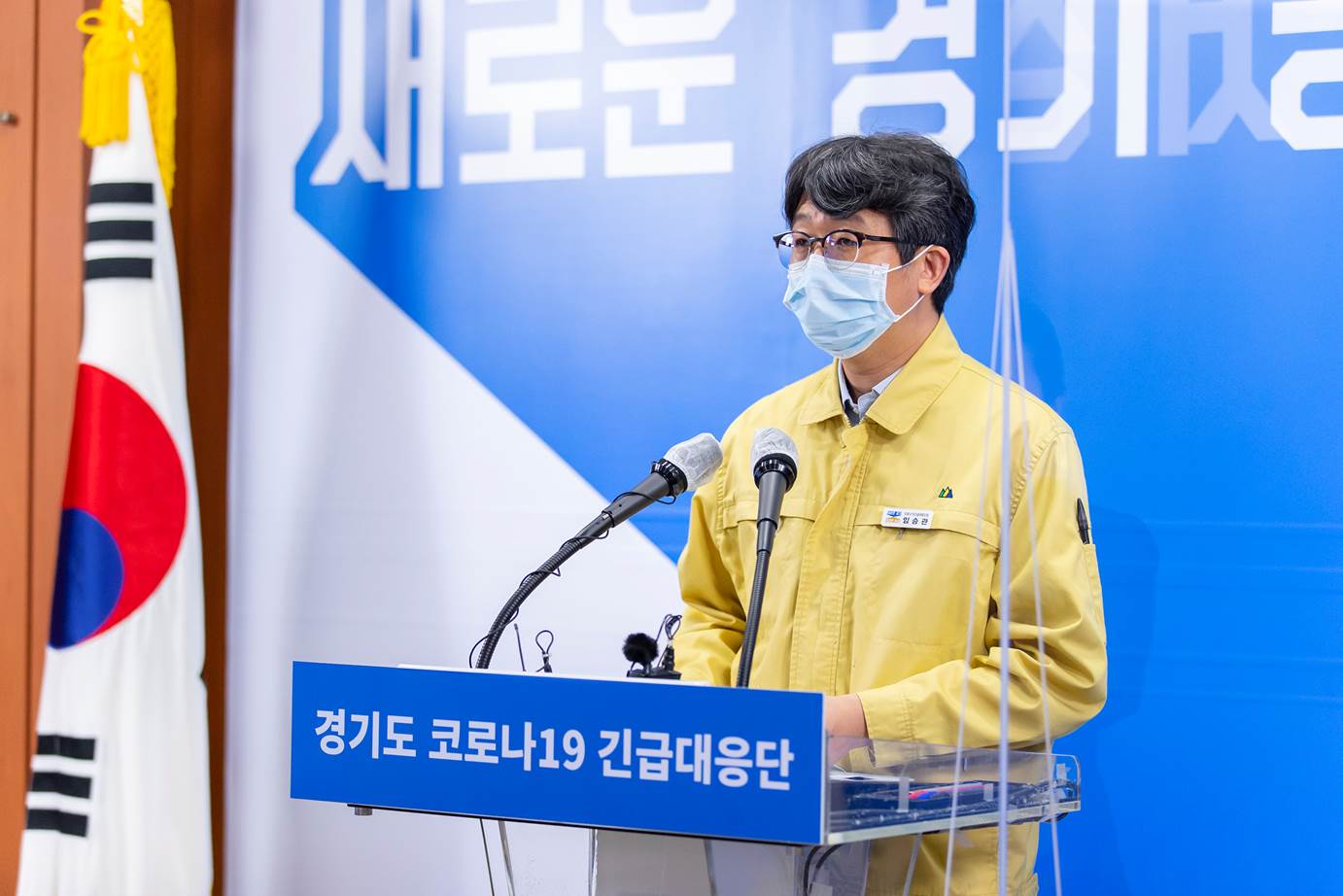[Sep.2021] Gyeonggi-do to Provide Psychological Support for Residential Treatment Center...
- Người lập 관리자
- Ngày lập 2021-12-13
Gyeonggi-do to Provide Psychological Support for Residential Treatment Center Detainees and At-home Patients

*Photograph: Press conference with Chief Lim Seung-gwan of the Gyeonggi COVID-19 Emergency Response Team
Residential Treatment Center detainees and at-home patients may receive assistance from professional counselors or receive prescriptions from psychiatrists based on their risk levels after mental health self-examinations.
Gyeonggi-do is providing COVID-19 psychological support for Residential Treatment Center detainees and at-home patients. All participants undergo a mental health self-examination, after which they are given customized counseling or treatment based on individual risk levels.
Chief Lim Seung-gwan of the Gyeonggi COVID-19 Emergency Response Team stated, “The levels of burden, pressure, and anxiety of COVID-19 patients are beyond imagination. It is just as important to provide psychological support as it is to make efforts to contain the virus.”
After receiving patient agreement on obtaining personal information, the Gyeonggi Mental Health Welfare Center provides mental health self-examinations for Residential Treatment Center detainees and at-home patients, then classifies them into two groups based on the results.
Those in the low-risk group are kept on the contact list to make sure that they can receive help from an expert whenever they wish. Those in the high-risk group are immediately contacted by a counseling expert to receive counseling sessions. If needed, they can also receive counseling or a prescription from a psychiatrist.
This program first started on May 24, 2021, at six Residential Treatment Centers under Gyeonggi Provincial Medical Center. It was then expanded in June to include at-home COVID-19 patients in Gyeonggi-do who are continuously increasing in number.
To date, Gyeonggi-do has provided psychological support services to 414,049 patients, family members, and treatment center detainees.